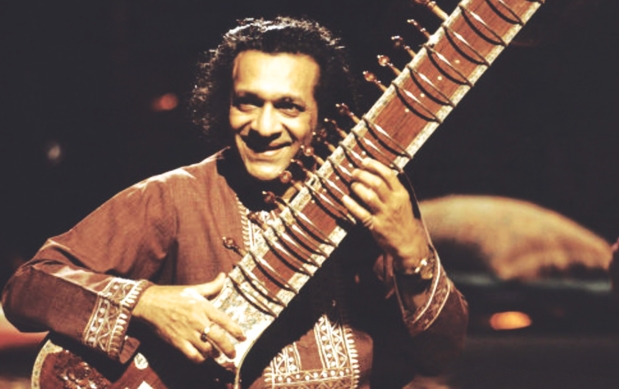|
Post Campus
Forty Years of The Concert for Bangladesh- Here Comes The Sun
Asrar Chowdhury
 |
Source: Internet |
1971. In just 266 days, three million people gave their lives at 7.83 lives per minute in one of the worst genocides of the 20th Century. Ten million more were dislocated in neighbouring India. Countless became victims of rape and crimes against humanity. This is just the human price Bangladesh paid for her freedom. 1971 was the worst of the worst times. 1971 was also the best of the best times. The Liberation War united the Bengali nation. The Liberation War also united all freedom loving people of the world. Very few nations have the privilege of fighting a War of Independence. Bangladesh was lucky. Bangladesh had foreign friends who stood beside through thick and in thin. All the friends contributed in whatever way they could, leaving Bangladesh in a debt of gratitude and friendship. One of those friends was The Concert for Bangladesh where for the first time, music was used as a weapon in modern warfare.
In June 1971, the Bengali musician Pandit Ravi Shankar asked his 'friend', The Beatles musician, George Harrison, to help create awareness about the Liberation War of Bangladesh and collect funds for the refugees who took shelter in India. George recorded the single “Bangladesh”. He then persuaded Apple Records to publish Ravi's “Joy Bangla” so the two singles could raise funds for the war-affected people of Bangladesh.
Time was running out. The death toll was rising. The Bangladesh genocide was turning into a humanitarian disaster. It was evident- this War could not be won by Bangladesh alone. Friends from the international fraternity came forward. Ravi asked George 'with sadness in his eyes' that 'he wanted help before his country dies'. George 'couldn't feel the pain', but 'he knew he had to try'. George called all his friends 'to help save a life'. The stage was set for The Concert for Bangladesh at Madison Square Garden, New York on Sunday the First Day of August, 1971.
The Concert for Bangladesh was the first instance of artists and the freedom loving people of the USA and the world, fighting a war - side by side with the people of Bangladesh and the Mukti Bahini in the Liberation War of Bangladesh. Humanity could not remain silent at the genocide and ethnic cleansing of the Bengali nation.

Source: Internet
The Concert for Bangladesh was divided into two parts. In Part I, Pandit Ravi Shankar (Sitar), Ustad Ali Akbar Khan (Sarod), Ustad Alla Rakha (Tabla) and Srimati Kamala Chakravarty (Tamboura) presented Bangla Dhun that was based on a traditional Bhatiyali folk tune from Bangladesh. Ravi Shankar's introduction said it all- “Friends … we are not trying to make any politics. We are artists. But through our music we would like you to feel the agony and also the pain and lot of sad happenings in Bangladesh and also the refugees who have come to India".
George and Friends performed in Part II. This was George's first solo concert. After the break up of the Beatles in 1970- George was the first 'Beatle' to have a number one album on both sides of the Atlantic- the classic 3LP Album ”All Things Must Pass”. From that Album, George performed Wah-Wah; My Sweet Lord; Awaiting On You All; and Beware of Darkness. The list of songs also included three Harrison numbers as a Beatle- While My Guitar Gently Weeps; Here Comes The Sun; and Something.
Part II also comprised presentations from Bob Dylan (Hard Rains A Gonna Fall; It Takes A Lot To Laugh/It Takes A Train To Cry; Blowing In The Wind; Mr Tambourine Man; and Just Like A Woman); Billy Preston (That's The Way God Planned It); Ringo Starr (It Don't Come Easy); and Leon Russell (Medley of Jumping Jack Flash and Young Blood). Eric Clapton, Klaus Voorman, and Badfinger performed as support artists/bands.
With no Twitter and Facebook in 1971, The Concert for Bangladesh was monumental in creating a Bangla Spring about what was actually happening in the newly founded State of Bangladesh. Defying Rudyard Kipling, The East and The West did meet at a common destination- humanity through the spirituality and the love and peace of music. As The Concert for Bangladesh celebrates its 40th Anniversary on August 1, 2011- Bangladesh is gearing up to finally thank the friends of 1971 starting with the Bangladesh Freedom of Honour to Srimati Indira Gandhi on 25 July 2011. Critics may argue it's been too late. Optimists will argue- the late was for the better in disguise. A revitalisation of the spirit of 1971 among the young of Bangladesh can only be for the good as Bangladesh looks forward to progressing in the 21st Century.
Thanks to all friends of The Concert for Bangladesh and all friends of 1971 for helping Bangladesh when the nation needed them badly. The Independence of Bangladesh will never be complete without a formal recognition to all of you. Forty Years on- 'Here Comes The Sun', finally!
(The author teaches economic theory at Jahangirnagar University and North South University.)
|
